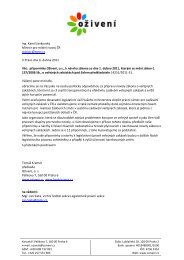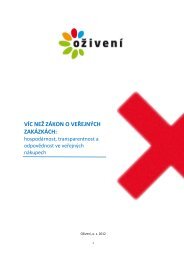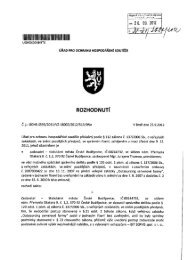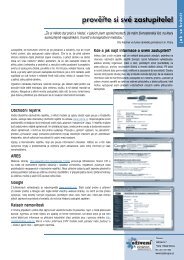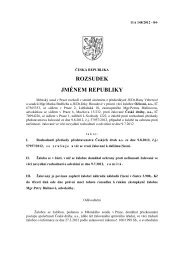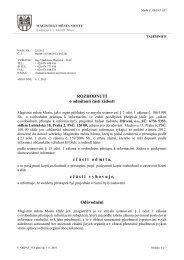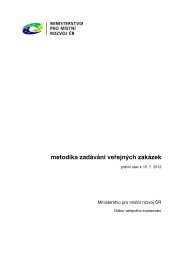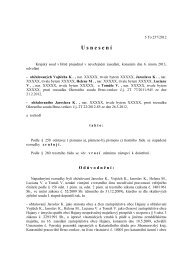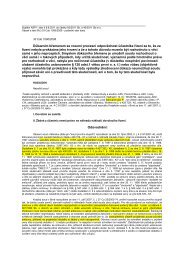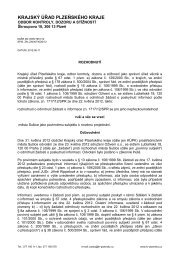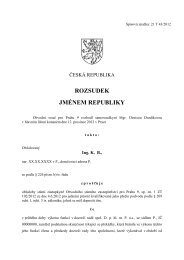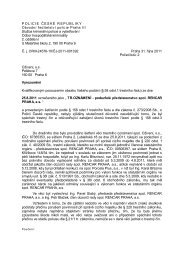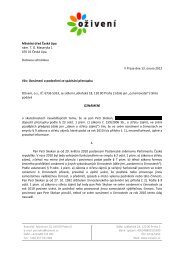Managing Conflict of Interest - Organisation for Economic Co ...
Managing Conflict of Interest - Organisation for Economic Co ...
Managing Conflict of Interest - Organisation for Economic Co ...
Create successful ePaper yourself
Turn your PDF publications into a flip-book with our unique Google optimized e-Paper software.
xxxii <strong>Managing</strong> <strong><strong>Co</strong>nflict</strong> <strong>of</strong> <strong>Interest</strong>interest exists because our actions are proper. The conflict <strong>of</strong> interestis there even if no laws are broken. We must be beyond reproach;this <strong>of</strong>ten means we must recuse ourselves or abstain from the decision-makingprocess. This may seem unnecessary and impractical attimes, but I would argue that it is one <strong>of</strong> the most important buildingblocks <strong>for</strong> creating public trust in government institutions.As an economist, I would also like to illustrate the importance<strong>of</strong> recusing oneself from the decision-making process when thereis a conflict <strong>of</strong> interest with the theory <strong>of</strong> the <strong>Economic</strong> Man. Introducedby John Stuart Mill in the late 19th century, this theory indicatesthat people act to obtain the highest possible well-being <strong>for</strong>themselves, given the available in<strong>for</strong>mation about opportunitiesand constraints.The constraints Mill refers to are the laws that hold our societytogether. These laws ensure that the interest <strong>of</strong> the individualdoes not trump the interest <strong>of</strong> society. But exactly because <strong>of</strong> theself-interest <strong>of</strong> Mill’s <strong>Economic</strong> Man, we have to remember that ouractions can be drawn into question, regardless <strong>of</strong> how honorableour intentions are.So when it comes to dealing with the issue <strong>of</strong> conflict <strong>of</strong> interestit is not enough to have the laws and regulations <strong>of</strong> a country, institution,or corporation that either prevent conflict <strong>of</strong> interest fromarising (e.g., by putting one’s assets in a blind trust upon assuming<strong>of</strong>fice) or manage the conflict (e.g., by disclosing in<strong>for</strong>mation,abstaining from decisions, per<strong>for</strong>ming independent, third-partyevaluations). We also need to learn from the wisdom <strong>of</strong> our ancestorsand act in a way that is beyond reproach. That is why we alsoneed a code <strong>of</strong> ethics or conduct.Ladies and gentlemen, as our President emphasized to all <strong>of</strong>you this morning, Indonesia is conducting an anti-corruption campaignat all levels, which applies to all without exception. We are notonly focusing on en<strong>for</strong>cement but also on preventive measures anda massive public education and awareness campaign. We are als<strong>of</strong>ully aware <strong>of</strong> the challenges <strong>of</strong> eliminating corruption—it cannotbe done overnight, but is a process that will take time. Nevertheless,it is a process that must be started and maintained, and mustinclude administrative and bureaucratic re<strong>for</strong>ms at all levels.The Government (and thus by definition those representingthe Government!) needs to lead by example in tackling the issue<strong>of</strong> good governance and corruption, and the right balance mustADB/OECD Anti-<strong>Co</strong>rruption Initiative <strong>for</strong> Asia and the Pacific



